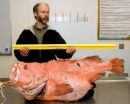Blood biomarker may detect lung cancer, study presented at CHEST 2014
2014-10-21
(Press-News.org) (Austin, Texas) October 21, 2014 – A new study shows that patients with stage I to stage III non-small cell lung cancer have different metabolite profiles in their blood than those of patients who are at risk but do not have lung cancer. The study abstract was released today in an online supplement of the journal CHEST and will be presented at CHEST 2014, the annual meeting of the American College of Chest Physicians in Austin, Texas, on October 29.
Researchers at Cleveland Clinic studied the blood serum of 284 subjects, 48% of whom were female with a mean age of 68 years. The subjects were diagnosed with adenocarcinoma or squamous lung cancer: 44% of those at stage I, 17% at stage II, and 39% at stage III. A control group of 194 patients—who matched the cancer patients in age, gender, smoking history, COPD, diabetes, and blood lipids were at risk for lung cancer but did not have the disease. There were 534 metabolites identified, with the concentration of 149 metabolites differing significantly between the cancer and control groups.
"Our study results showed that patients with lung cancer have altered metabolic processes," said Peter J. Mazzone, MD, FCCP, Director of the Lung Cancer Program for the Respiratory Institute at Cleveland Clinic. "This information could lead to the development of a diagnostic biomarker for early detection of lung cancer."
INFORMATION:
CHEST 2014 is the 80th annual meeting of the American College of Chest Physicians (CHEST), held October 25-30, 2014, in Austin, Texas. The American College of Chest Physicians, publisher of the journal CHEST, is the global leader in advancing best patient outcomes through innovative chest medicine education, clinical research, and team-based care. Its mission is to champion the prevention, diagnosis, and treatment of chest diseases through education, communication, and research. It serves as an essential connection to clinical knowledge and resources for its 18,700 members from around the world who provide patient care in pulmonary, critical care, and sleep medicine. For information about the American College of Chest Physicians, visit chestnet.org, or follow the CHEST meeting hashtag, #CHEST2014, on social media.
ELSE PRESS RELEASES FROM THIS DATE:
2014-10-21
WASHINGTON, Oct. 21, 2014 — It's National Chemistry Week, and this year's theme is the sweetest of all: candy. Whether it's ice cream, candy bars, pudding or cake, we love our sweets. But why do those treats actually taste sweet? Whether they're made with sugar or artificial sweeteners, it all comes down to chemistry. Find out more here: http://youtu.be/FaBFyEa8-eI.
Subscribe to the series at Reactions YouTube, and follow us on Twitter @ACSreactions to be the first to see our latest videos.
INFORMATION:The American Chemical Society is a nonprofit organization ...
2014-10-21
The way in which male moths locate females flying hundreds of meters away has long been a mystery to scientists.
Researchers know the moths use pheromones to locate their mates. Yet when these chemical odors are widely dispersed in a windy, turbulent atmosphere, the insects still manage to fly in the right direction over hundreds of meters with only random puffs of their mates' pheromones spaced tens of seconds apart to guide them.
"The male moths are flying toward females integrating all of this information along the way and somehow getting to them," said Massimo Vergassola, ...
2014-10-21
An international team of physicists has measured a subtle characteristic in the polarization of the cosmic microwave background radiation that will allow them to map the large-scale structure of the universe, determine the masses of neutrinos and perhaps uncover some of the mysteries of dark matter and dark energy.
In a paper published this week in the Astrophysical Journal, the POLARBEAR consortium, led by University of California, Berkeley, physicist Adrian Lee, describes the first successful isolation of a "B-mode" produced by gravitational lensing in the polarization ...
2014-10-21
CORVALLIS, Ore. – Children who show poor decision-making skills at age 10 or 11 may be more likely to experience interpersonal and behavioral difficulties that have the potential to lead to high-risk health behavior in their teen years, according to a new study from Oregon State University psychology professor.
"These findings suggest that less-refined decision skills early in life could potentially be a harbinger for problem behavior in the future," said Joshua Weller, an assistant professor in the School of Psychological Science in OSU's College of Liberal Arts.
However, ...
2014-10-21
Boulder, CO, USA — The last ten years have been a remarkable time for great earthquakes. Since December 2004 there have been no less than 18 quakes of Mw8.0 or greater – a rate of more than twice that seen from 1900 to mid-2004. Hundreds of thousands of lives have been lost and massive damage has resulted from these great earthquakes. But as devastating as such events can be, these recent great quakes have come with a silver lining: They coincide with unprecedented advances in technological and scientific capacity for learning from them.
"We previously had ...
2014-10-21
Even though they are not hungry, children as young as three will find high-energy treats too tempting to refuse, new QUT research has found.
In a study of three and four year olds, 100 per cent of children opted for a sweet or savory snack despite eating a filling healthy lunch only 15 minutes prior.
Nutrition researcher Holly Harris, from QUT's Institute of Health and Biomedical Innovation, said the results highlighted the health risks for children frequently confronted with an abundance of energy-dense, high-calorie foods.
Ms Harris's study, published in the journal ...
2014-10-21
Recreational fishermen prize large trophy fish. Commercial fishing gear targets big fish. After all, larger fish feed the egos of humans as well as their bellies.
A new compilation of research from around the world now shows that big, old, fat, fertile, female fish – known as BOFFFFs to scientists – are essential for ensuring that fishery stocks remain sustainable.
"Information on many different kinds of freshwater and marine fish tell the same story," says lead author Dr. Mark Hixon of the University of Hawai'i at Mānoa. "The loss of big fish decreases ...
2014-10-21
You are what you eat, unless you're not quite sure what you ate.
A new paper by Jinan Banna and Marie Kainoa Fialkowski of the University of Hawai'i at Manoa's College of Tropical Agriculture and Human Resources and Marilyn Townsend of the University of California, Davis' College of Agricultural and Environmental Sciences takes a critical look at how faulty self-reporting of the food we eat can lead to incorrect conclusions about whether we are meeting dietary recommendations for certain essential nutrients.
Banna's study is the first to examine how accounting for the ...
2014-10-21
A new study by researchers at Hospital for Special Surgery (HSS) identifies a new signaling pathway that contributes to the development and progression of inflammatory bone erosion, which occurs in patients with rheumatoid arthritis (RA). Rheumatoid arthritis is a systemic inflammatory autoimmune disease that affects millions of adults worldwide. Bone erosion in joints is a major cause of disability in RA patients.
The study, titled "RBP-J imposes a requirement for ITAM-mediated costimulation of osteoclastogenesis," was published online in the Journal of Clinical Investigation ...
2014-10-21
Philadelphia, PA (October 21, 2014) — Binge drinking in early adulthood is associated with an increased likelihood of high blood pressure in males, while low to moderate alcohol use in early adulthood is associated with a decreased likelihood of hypertension in females. The findings come from a study that will be presented at ASN Kidney Week 2014 November 11¬–16 at the Pennsylvania Convention Center in Philadelphia, PA.
While studies have found that drinking alcohol can raise blood pressure in adults, little is known about the links between alcohol use ...
LAST 30 PRESS RELEASES:
[Press-News.org] Blood biomarker may detect lung cancer, study presented at CHEST 2014


